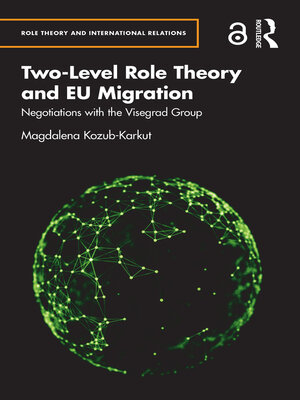Two-Level Role Theory and EU Migration
ebook ∣ Negotiations with the Visegrad Group · Role Theory and International Relations
By Magdalena Kozub-Karkut

Sign up to save your library
With an OverDrive account, you can save your favorite libraries for at-a-glance information about availability. Find out more about OverDrive accounts.
Find this title in Libby, the library reading app by OverDrive.



Search for a digital library with this title
Title found at these libraries:
| Library Name | Distance |
|---|---|
| Loading... |
Applying role theory and Putnam's two-level game framework to the European migration crisis of 2015, Magdalena Kozub-Karkut expertly shows how the Czech Republic, Slovakia, Hungary, and Poland used the crisis to contest their roles in the European Union (EU) and how each country and the V4, as a group, subsequently used their new contested roles in the bargaining process within the EU structures. In doing so, Kozub-Karkut demonstrates how international negotiations might be used by the chief negotiators as a way of triggering contestation and enhancing their position at the domestic level as well as how role contestation processes from the domestic level might be used at the international one.
Two-Level Role Theory and EU Migration is an excellent resource for scholars and students of Foreign Policy Analysis, International Relations Theory, European Studies, and Migrations Studies.
Chapter 3 and 7 of this book is freely available as a downloadable Open Access PDF at http://www.taylorfrancis.com under a Creative Commons Attribution-Non Commercial-No Derivatives (CC-BY-NC-ND) 4.0 license.







